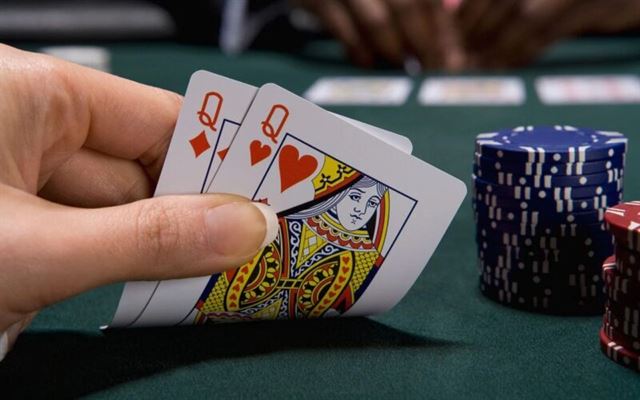Craps is a popular casino game that involves betting on the outcome of dice rolls. Over the years, various betting systems have been developed and promoted as strategies to increase the chances of winning in craps. These systems claim to provide players with a mathematical advantage and a way to beat the odds. However, there is ongoing debate among experts and players about the effectiveness of these betting systems. This article aims to explore whether craps betting systems truly work or if they are simply a gambler’s fallacy.
The Effectiveness of Craps Betting Systems in Casinos
Craps is a game of chance, where players bet on the outcome of the roll of two dice. Over the years, many players have developed various betting systems in an attempt to increase their chances of winning. These systems claim to have a mathematical basis and promise to give players an edge over the house. But do these craps betting systems really work, or are they just a gambler’s fallacy?
To answer this question, it is important to understand how craps betting systems work. One of the most well-known systems is the Martingale system. This system is based on the idea that if you keep doubling your bet after every loss, you will eventually win and recoup all your losses. The theory behind this system is that the probability of losing several times in a row is low, and eventually, you will hit a winning streak.
However, the flaw in the Martingale system, and many other craps betting systems, is that they rely on the assumption that past outcomes can predict future outcomes. In reality, each roll of the dice is an independent event, and the outcome of one roll has no bearing on the outcome of the next. This is known as the gambler’s fallacy, the belief that if something happens more frequently than normal during a given period, it will happen less frequently in the future, or vice versa.
Another popular craps betting system is the Paroli system. This system is the opposite of the Martingale system, where players double their bets after a win instead of a loss. The idea behind the Paroli system is to take advantage of winning streaks and maximize profits. However, just like the Martingale system, the Paroli system is based on the flawed assumption that past wins can predict future wins.
In reality, the effectiveness of craps betting systems is purely based on luck. No matter how complex or well-thought-out a system may be, it cannot change the fundamental nature of the game. Craps is a game of chance, and the outcome of each roll is determined by random factors that cannot be predicted or controlled.
That being said, some players may argue that using a betting system adds an element of discipline and structure to their gameplay. They may find it more enjoyable to follow a system rather than making random bets. However, it is important to remember that using a betting system does not increase your chances of winning. It may give you a sense of control, but ultimately, the outcome of the game is still determined by luck.
Analyzing the Pros and Cons of Craps Betting Systems
One of the most well-known craps betting systems is the Martingale system. This system is based on the idea that if you keep doubling your bet after every loss, you will eventually win and recoup all your losses. The theory behind this system is that eventually, you will hit a winning streak and make up for all your previous losses. However, the flaw in this system is that it assumes that you have an unlimited bankroll and that there are no table limits. In reality, most casinos have table limits, and if you hit a losing streak, you could quickly reach the table limit and be unable to double your bet any further.
Another popular craps betting system is the Paroli system. This system is the opposite of the Martingale system, as it involves increasing your bet after every win. The idea behind this system is that when you are on a winning streak, you should take advantage of it and increase your bets to maximize your winnings. However, like the Martingale system, the Paroli system also has its flaws. It assumes that winning streaks will continue indefinitely, which is not always the case. Eventually, you will hit a losing streak, and if you have been increasing your bets, you could end up losing more money than you have won.
There are also more complex craps betting systems, such as the Fibonacci system and the D’Alembert system. These systems involve a series of mathematical calculations and progressions to determine the size of your bets. While these systems may seem more sophisticated, they are still based on the same flawed premise that you can predict the outcome of the dice rolls. In reality, craps is a game of chance, and no amount of mathematical calculations can change that.
So, do craps betting systems actually work? The answer is no. These systems are based on the gambler’s fallacy, which is the belief that past events can influence future outcomes in a game of chance. In reality, each roll of the dice is independent and has no bearing on the next roll. The outcome of the dice rolls is determined by random chance, and no amount of betting systems or strategies can change that.
Exploring Different Craps Betting Strategies in the Casino
There are many different craps betting systems out there, each claiming to be the best way to beat the odds and come out ahead. Some of these systems are based on mathematical principles, while others rely on superstition or gut feelings. But do these systems actually work, or are they just a gambler’s fallacy?
One of the most well-known craps betting systems is the Martingale system. This system is based on the idea that if you keep doubling your bet after every loss, you will eventually win back your losses and make a profit. The theory behind this system is that eventually, you will have a winning streak that will offset all of your previous losses. However, the flaw in this system is that it assumes that you have an unlimited bankroll and that you will never reach the table’s maximum bet limit.
Another popular craps betting system is the Paroli system. This system is the opposite of the Martingale system, as it involves increasing your bet after every win. The idea behind this system is that if you are on a winning streak, you should continue to increase your bets and take advantage of your good fortune. However, like the Martingale system, the Paroli system also assumes that you will never reach the table’s maximum bet limit and that your winning streak will continue indefinitely.
While these betting systems may seem logical on the surface, they are ultimately flawed because they do not take into account the inherent randomness of the game. Craps is a game of chance, and each roll of the dice is independent of the previous roll. Just because you have lost several times in a row does not mean that you are due for a win, and just because you have won several times in a row does not mean that you are guaranteed to keep winning.
In addition to the Martingale and Paroli systems, there are many other craps betting systems out there, each with its own set of rules and strategies. Some players swear by these systems and claim that they have helped them win big at the craps table. However, it is important to remember that these systems are not foolproof and that there is no guaranteed way to beat the odds in a game of chance.
Debunking the Myth of Craps Betting Systems: Fact or Fiction?
One of the most well-known betting systems in craps is the Martingale system. This system is based on the idea that if you keep doubling your bet after every loss, you will eventually win and recoup all your losses. The theory behind this system is that eventually, you will hit a winning streak and make up for all your previous losses. However, this system is flawed.
The Martingale system assumes that you have an unlimited bankroll and that there are no table limits. In reality, most players have a limited amount of money to gamble with, and casinos have maximum betting limits. If you hit a losing streak and keep doubling your bet, you will eventually reach the table limit or run out of money. This is known as the “gambler’s ruin” and is a common pitfall of the Martingale system.
Another popular betting system in craps is the Paroli system. This system is the opposite of the Martingale system, where you double your bet after every win. The idea behind the Paroli system is to take advantage of winning streaks and maximize your profits. However, like the Martingale system, the Paroli system is also flawed.
The Paroli system assumes that winning streaks will continue indefinitely. In reality, winning streaks are rare and often followed by losing streaks. If you keep doubling your bet after every win, you may end up losing all your profits and more when the losing streak eventually hits. This is known as the “gambler’s fallacy” and is a common misconception among players.
So, do craps betting systems really work? The answer is no. Craps is a game of chance, and the outcome of each roll of the dice is completely random. Betting systems may give players a false sense of control, but they cannot change the odds or predict the outcome of the game. In the long run, the house always has the advantage in craps, and no betting system can overcome this.
That being said, some players may still find enjoyment in using betting systems in craps. They may believe that these systems give them a strategy to follow and make the game more exciting. As long as players understand that betting systems do not guarantee a win and are prepared to accept the risks involved, there is no harm in using them for entertainment purposes.
In conclusion, craps betting systems are not a reliable way to increase your chances of winning. They are based on flawed assumptions and cannot change the outcome of the game. Craps is a game of chance, and the best strategy is to understand the rules, manage your bankroll, and enjoy the excitement of the game without relying on betting systems.









